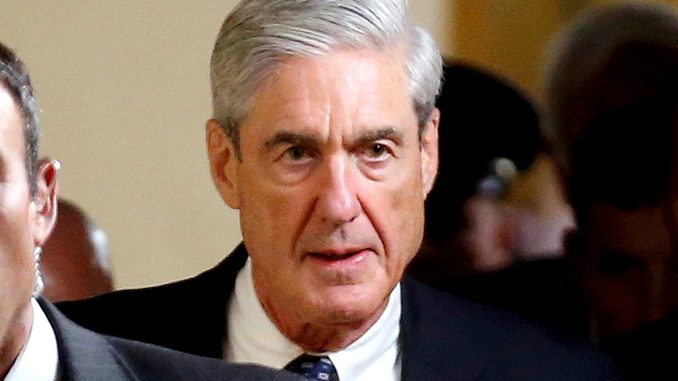
WASHINGTON — The U.S. special counsel who is investigating alleged Russian interference in the 2016 presidential election has charged an attorney with lying about his communications with Rick Gates, a former aide to Donald Trump’s campaign.
Special Counsel Robert Mueller unsealed criminal charges on Tuesday against lawyer Alex van der Zwaan for allegedly lying to the FBI last November about work his law firm performed in 2012 related to Ukraine.
The charge puts pressure on Gates and Trump’s former campaign manager Paul Manafort, who are both facing criminal charges including conspiracy to launder money and failure to register as foreign agents in connection with their political work for a pro-Russia Ukrainian party.
They have pleaded not guilty. A trial is tentatively expected this fall, though recent media reports have said that Gates is expected to plead guilty in the near future.
Mueller is investigating whether Moscow meddled in the 2016 election and colluded with Trump’s campaign. Trump says there was no collusion and Russia denies interfering with the election.
The charging documents released on Tuesday say van der Zwaan made false statements about the last time he communicated with Gates and another unnamed person, only identified as “Person A.”
In truth, the charge alleges, he spoke with Gates and Person A in September 2016 about the report and “surreptitiously recorded the calls.”
He also allegedly told investigators he did not know why an email between him and Person A was not produced to the Special Counsel’s office but had actually deleted or failed to produce emails that were being sought.
Van der Zwaan will appear in court later Tuesday where he is expected to plead guilty. Reuters could not immediately find out who will be representing him.
COOPERATING?
“He is pleading to false statements, which is a relatively small charge. My guess is he is cooperating,” said Barbara McQuade, a former U.S. attorney for the Eastern District of Michigan.
The case underscores the extent of Mueller’s probe and of his interpretation of how far he can investigate as he looks into whether Russia tried to influence the election in favor of Trump by hacking the emails of leading Democrats and distributing disinformation and propaganda online.
Manafort has argued the charges against him fall outside of Mueller’s jurisdiction, because they have nothing to do with Trump’s election.
Under pressure from the U.S. Justice Department, Manafort and Gates retroactively registered as foreign agents for their lobbying and public relations work for Ukraine’s former pro-Russia President Viktor Yanukovych.
Their lobbying firm received $17.1 million for that work, filings with the Justice Department show.
Tuesday’s court filing does not name the law firm that van der Zwaan worked for, though a 2012 report on former Ukrainian Prime Minister Yulia Tymoshenko that it cited was penned by the prominent international law firm Skadden, Arps, Slate, Meagher & Flom LLP.
In a statement on Tuesday, a spokeswoman for the firm said it had terminated van der Zwaan’s employment in 2017 and “has been cooperating with authorities in connection with this matter.”
Van der Zwaan’s father-in-law is Russian billionaire German Khan, the founder of the privately owned Alfa Bank. Khan was recently named on a list of Russian oligarchs close to the Kremlin that was released by the U.S. Treasury Department.
The 2012 Skadden Arps report on Tymoshenko has proven to be controversial. Lawyers at the firm, including van der Zwaan, wrote it at Manafort’s behest.
The report was used to justify the pretrial detention of Tymoshenko by her rival, and Manafort’s client, Yanukovych.
Tymoshenko’s prosecution was condemned by numerous governments and the European Union as politically motivated, and she was released from prison after her conviction was thrown out under a revision to Ukraine’s penal code enacted during the closing days of the 2014 Ukrainian revolution.
Tymoshenko filed a civil lawsuit against Manafort and others, claiming he had orchestrated the Skadden Arps investigation and alleging the Ukrainian government had “grossly underestimated” how much Skadden was paid for the work.
The lawsuit was eventually dismissed.



